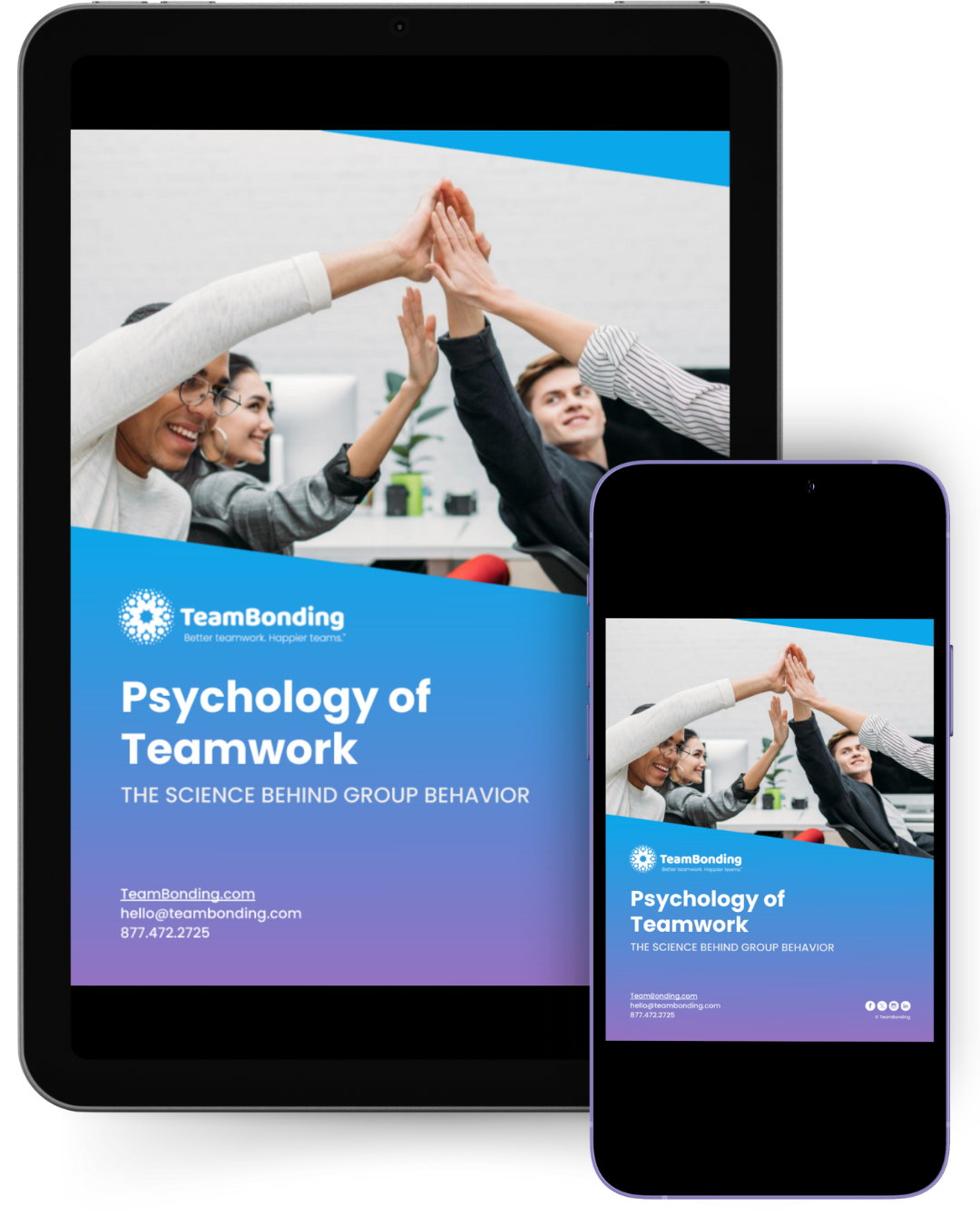Psychology of Teamwork eBook
What makes successful teamwork? This eBook explains the psychology of groups and shares the secrets of great teamwork. Discover the science behind group behavior to improve your team dynamics.
Why this download?
The Psychology of Teamwork eBook gives you the tools and knowledge to build a strong, cohesive team. You’ll learn the components of teamwork backed by scientific studies and get several starter games to start connecting with your coworkers.
What you get
- 4 crucial components of teamwork
- Team lifecycle stages
- Effective leadership styles
- 2 bonus teamwork icebreakers
We donate to a global cause every time this resource is downloaded. Help us change the world!
Complete the form to download

Drop your email for expert employee engagement tips.
Less drama? Greater productivity and job satisfaction? TeamBonding is here to help you build a stronger and happier team. Subscribe to get one-of-kind insights and news from our team building gurus and start boosting employee engagement today.




